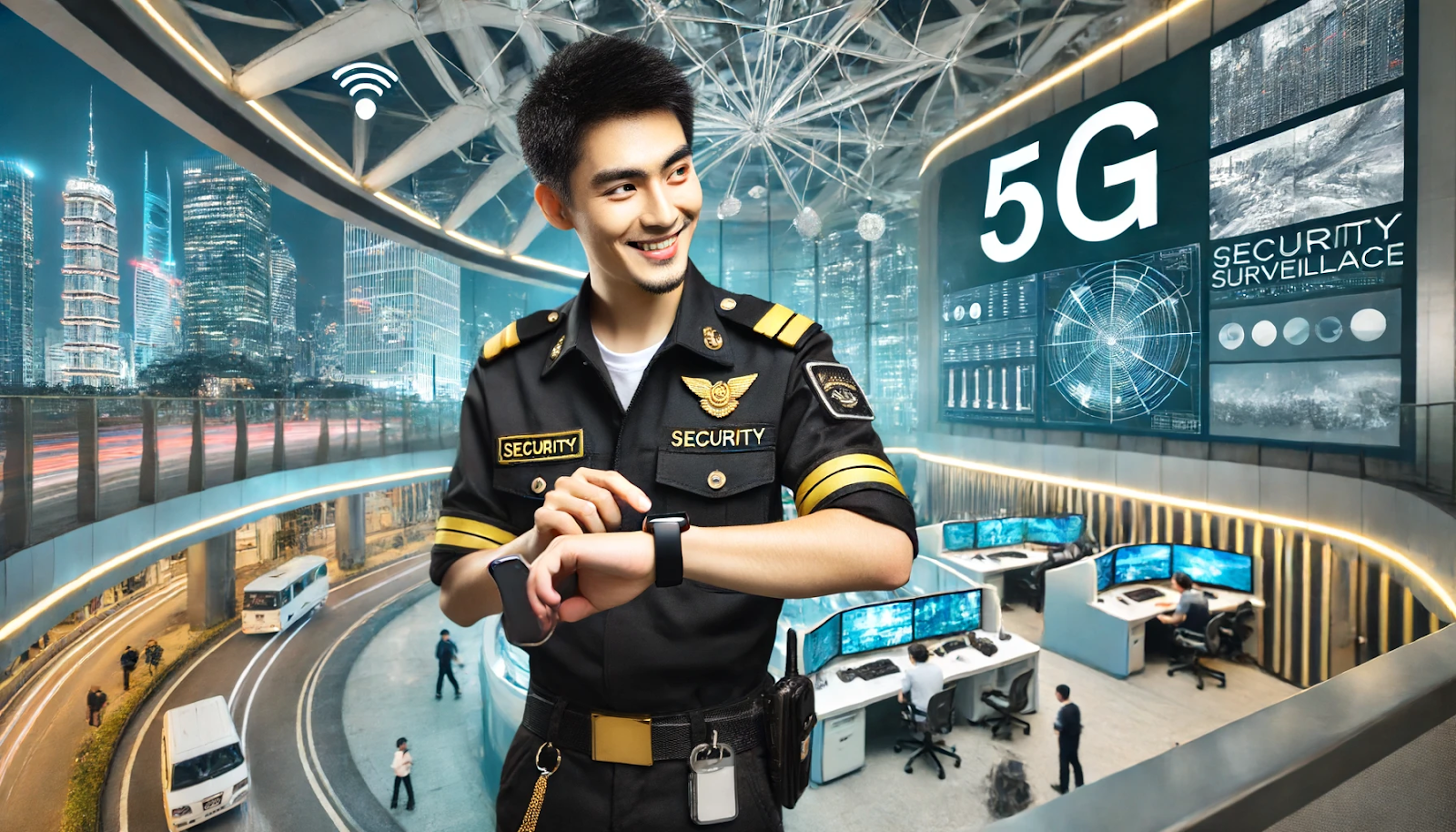The emergence of 5G technology promises to revolutionize many industries, and the security sector is no exception. For property managers, chief security officers, and security company hiring managers, understanding how 5G can enhance communication and response times in security operations is crucial. This blog explores the potential impact of 5G on security services, shedding light on its benefits and practical applications.
Enhanced Communication
Real-Time Data Transmission
One of the standout features of 5G technology is its ability to transmit data in real time. For security services, this means that high-definition video footage, sensor data, and other critical information can be shared instantaneously. This capability allows security teams to monitor and respond to incidents as they happen, reducing delays and improving overall efficiency.
Seamless Connectivity
5G provides seamless connectivity even in densely populated areas or buildings with complex infrastructure. This is particularly beneficial for large properties or campuses where maintaining a reliable communication network can be challenging. With 5G, security personnel can stay connected without interruption, ensuring continuous surveillance and communication.
Improved Device Integration
The Internet of Things (IoT) is becoming increasingly integrated into security operations. 5G supports the connectivity of a vast number of devices, enabling better coordination between security cameras, sensors, alarms, and mobile devices. This interconnectedness allows for a more comprehensive and responsive security system.
Faster Response Times
Enhanced Mobility
5G’s low latency and high-speed connectivity enable security teams to operate more effectively on the move. Security personnel equipped with 5G-enabled devices can receive real-time updates and access critical information no matter where they are. This mobility ensures that they can respond to incidents more quickly and efficiently.
Advanced Analytics
The rapid data processing capabilities of 5G allow for the use of advanced analytics and artificial intelligence (AI) in security operations. For example, AI-driven video analytics can identify potential threats in real-time, alerting security teams immediately. This proactive approach can significantly reduce response times and prevent incidents before they escalate.
Remote Operations
With 5G, security operations can be managed remotely with greater efficiency. Central command centers can oversee multiple locations, providing real-time support and direction to on-site security personnel. This remote management capability enhances the overall responsiveness and coordination of security operations.
Practical Applications in Security
Smart Surveillance Systems
5G-enabled smart surveillance systems offer enhanced features such as facial recognition, license plate recognition, and behavioral analytics. These systems can quickly identify and track individuals, vehicles, or activities that pose a threat, providing security teams with actionable intelligence in real-time.
Drone Surveillance
Drones equipped with 5G technology can be deployed for aerial surveillance, covering large areas more efficiently than ground-based methods. These drones can transmit high-resolution video feeds in real-time, allowing security teams to monitor events and respond swiftly.
Wearable Technology
Wearable devices, such as smartwatches and body cameras, benefit greatly from 5G connectivity. These devices can transmit live video, track locations, and monitor the health and safety of security personnel. This data helps command centers to provide timely support and coordination.
Emergency Services Integration
5G facilitates better integration with emergency services such as police, fire departments, and medical responders. During an incident, security teams can share real-time information with these services, ensuring a coordinated and effective response.
Frequently Asked Questions (FAQs)
Q: How does 5G improve communication in security operations?
A: 5G provides real-time data transmission, seamless connectivity, and better device integration, enhancing overall communication in security operations.
Q: What impact does 5G have on response times in security services?
A: 5G enables enhanced mobility, advanced analytics, and remote operations, significantly reducing response times and improving efficiency.
Q: Can 5G technology be integrated with existing security systems?
A: Yes, 5G can enhance existing systems by providing better connectivity, data transmission, and support for IoT devices, making current security setups more efficient.
Q: Are there any specific applications of 5G in security services?
A: Yes, 5G is used in smart surveillance systems, drone surveillance, wearable technology, and integration with emergency services, among others.
Q: What are the benefits of using 5G-enabled drones in security operations?
A: 5G-enabled drones offer real-time high-resolution video transmission, covering large areas efficiently and providing immediate situational awareness to security teams.
Q: How does 5G support the use of wearable technology in security?
A: 5G enhances wearable devices by enabling live video transmission, location tracking, and monitoring the health and safety of security personnel.
.png)
.png)
.png)

.png)
.png)

.png)
.png)
.png)
.png)
